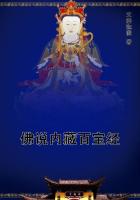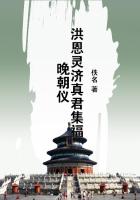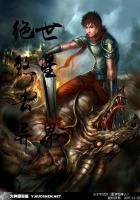There is even an advantage in having a book on Shakespear with the Shakespearian irony left out of account. I do not say that the missing chapter should not be added in the next edition: the hiatus is too great: it leaves the reader too uneasy before this touching picture of a writhing worm substituted for the invulnerable giant.
But it is none the less probable that in no other way could Mr Harris have got at his man as he has. For, after all, what is the secret of the hopeless failure of the academic Bardolaters to give us a credible or even interesting Shakespear, and the easy triumph of Mr Harris in giving us both? Simply that Mr Harris has assumed that he was dealing with a man, whilst the others have assumed that they were writing about a god, and have therefore rejected every consideration of fact, tradition, or interpretation, that pointed to any human imperfection in their hero. They thus leave themselves with so little material that they are forced to begin by saying that we know very little about Shakespear. As a matter of fact, with the plays and sonnets in our hands, we know much more about Shakespear than we know about Dickens or Thackeray: the only difficulty is that we deliberately suppress it because it proves that Shakespear was not only very unlike the conception of a god current in Clapham, but was not, according to the same reckoning, even a respectable man. The academic view starts with a Shakespear who was not scurrilous; therefore the verses about "lousy Lucy" cannot have been written by him, and the cognate passages in the plays are either strokes of character-drawing or gags interpolated by the actors. This ideal Shakespear was too well behaved to get drunk;therefore the tradition that his death was hastened by a drinking bout with Jonson and Drayton must be rejected, and the remorse of Cassio treated as a thing observed, not experienced: nay, the disgust of Hamlet at the drinking customs of Denmark is taken to establish Shakespear as the superior of Alexander in self-control, and the greatest of teetotallers.
Now this system of inventing your great man to start with, and then rejecting all the materials that do not fit him, with the ridiculous result that you have to declare that there are no materials at all (with your waste-paper basket full of them), ends in leaving Shakespear with a much worse character than he deserves. For though it does not greatly matter whether he wrote the lousy Lucy lines or not, and does not really matter at all whether he got drunk when he made a night of it with Jonson and Drayton, the sonnets raise an unpleasant question which does matter a good deal; and the refusal of the academic Bardolaters to discuss or even mention this question has had the effect of producing a silent verdict against Shakespear. Mr Harris tackles the question openly, and has no difficulty whatever in convincing us that Shakespear was a man of normal constitution sexually, and was not the victim of that most cruel and pitiable of all the freaks of nature: the freak which transposes the normal aim of the affections. Silence on this point means condemnation; and the condemnation has been general throughout the present generation, though it only needed Mr Harris's fearless handling of the matter to sweep away what is nothing but a morbid and very disagreeable modern fashion. There is always some stock accusation brought against eminent persons. When I was a boy every well-known man was accused of beating his wife. Later on, for some unexplained reason, he was accused of psychopathic derangement. And this fashion is retrospective. The cases of Shakespear and Michel Angelo are cited as proving that every genius of the first magnitude was a sufferer; and both here and in Germany there are circles in which such derangement is grotesquely reverenced as part of the stigmata of heroic powers.
All of which is gross nonsense. Unfortunately, in Shakespear's case, prudery, which cannot prevent the accusation from being whispered, does prevent the refutation from being shouted. Mr Harris, the deep-voiced, refuses to be silenced. He dismisses with proper contempt the stupidity which places an outrageous construction on Shakespear's apologies in the sonnets for neglecting that "perfect ceremony" of love which consists in returning calls and making protestations and giving presents and paying the trumpery attentions which men of genius always refuse to bother about, and to which touchy people who have no genius attach so much importance. No leader who had not been tampered with by the psychopathic monomaniacs could ever put any construction but the obvious and innocent one on these passages. But the general vocabulary of the sonnets to Pembroke (or whoever "Mr W. H." really was) is so overcharged according to modern ideas that a reply on the general case is necessary.















